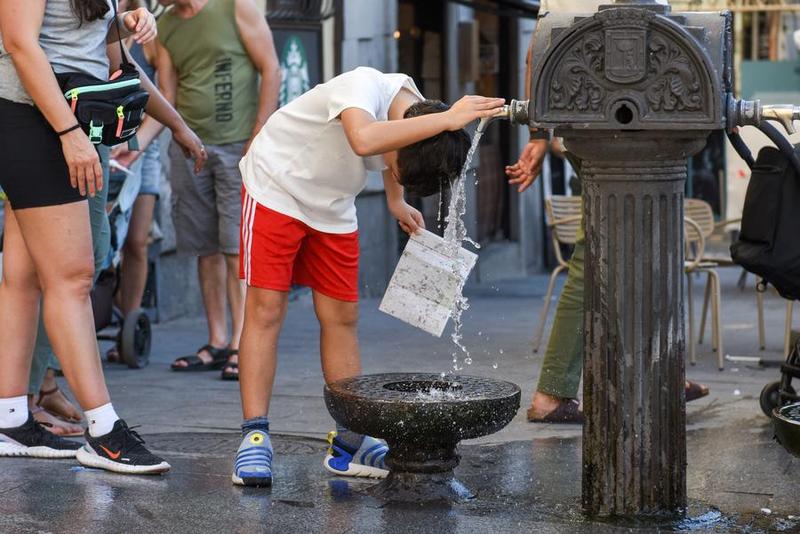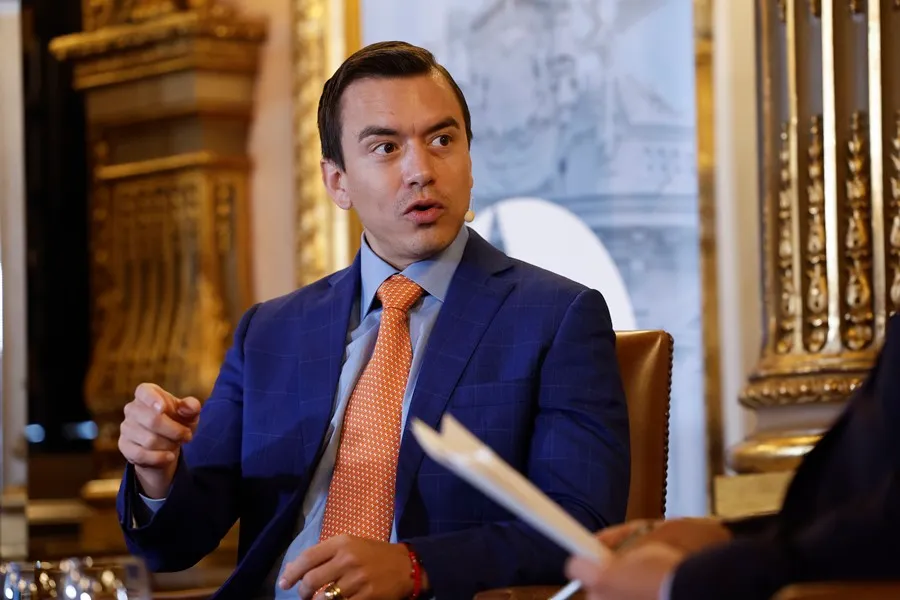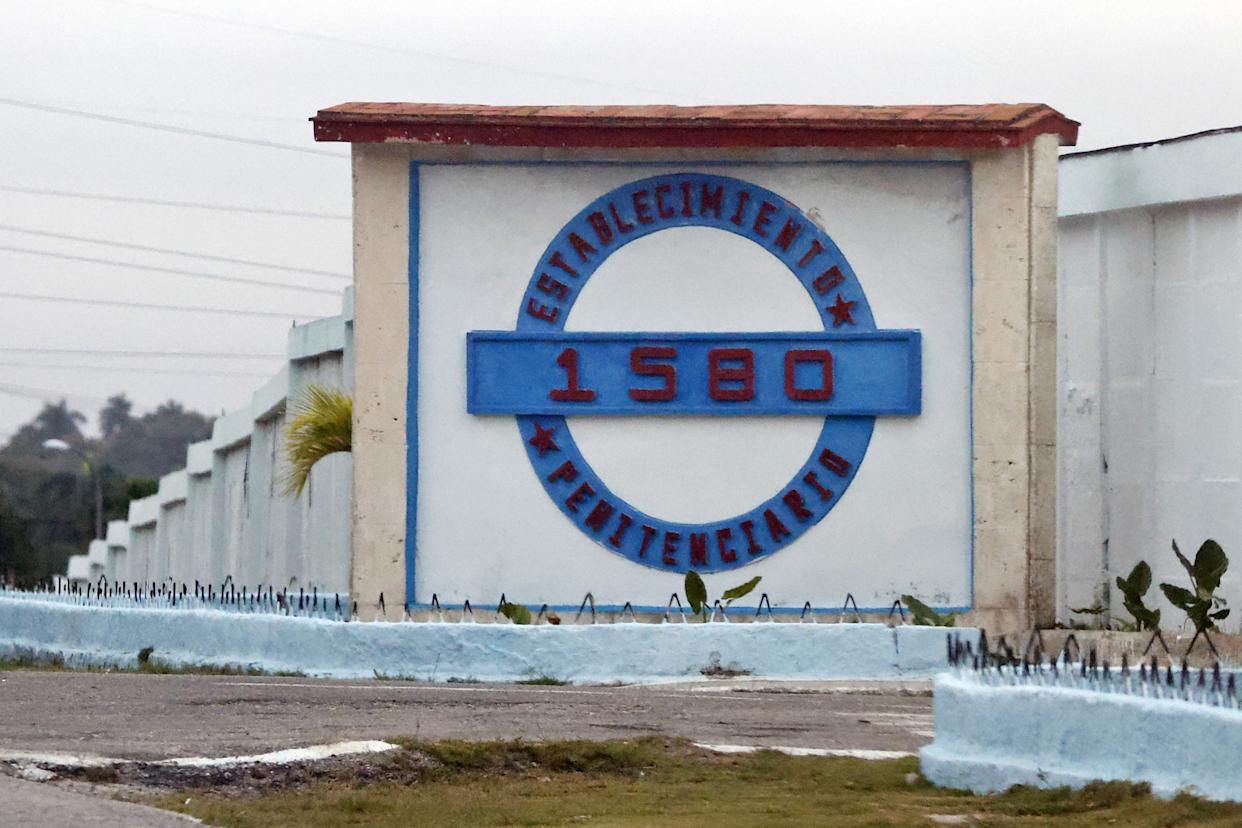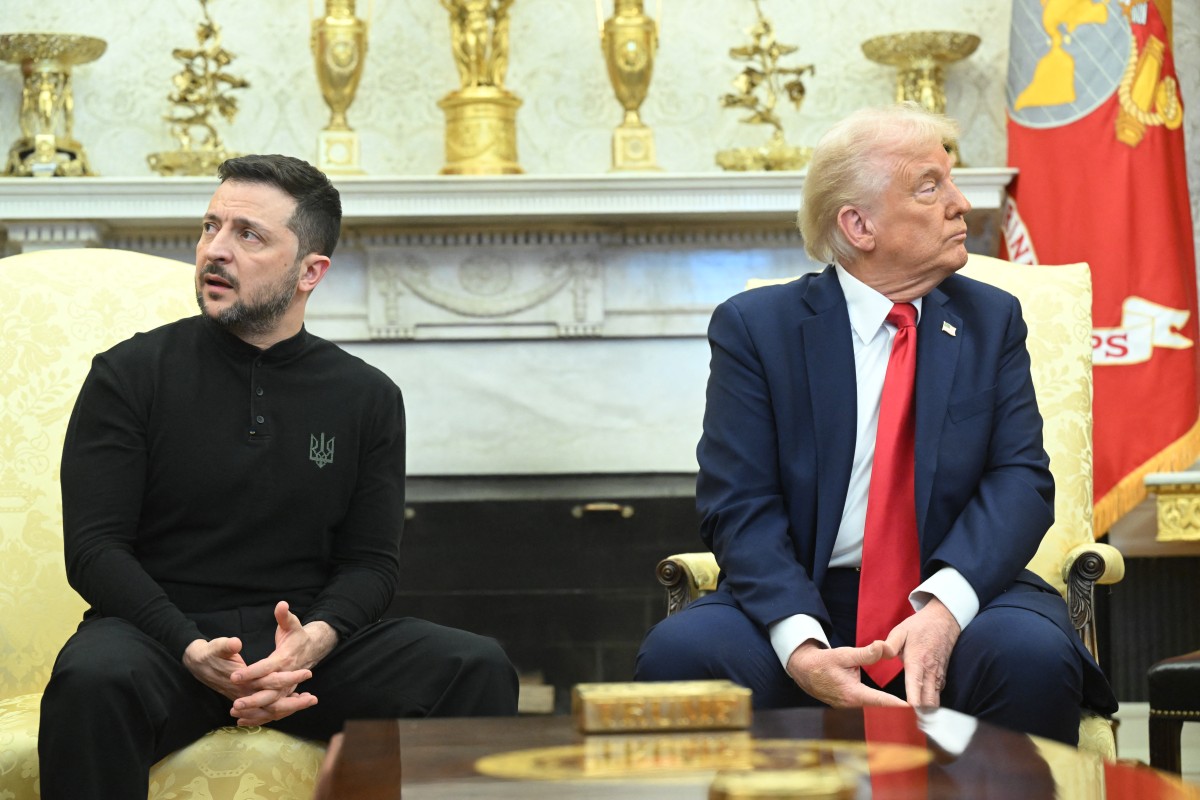Internacionales
Spain’s November aets temperature record

Spain experienced its “warmest” November on record this year, with an average temperature of 12.4°C, surpassing the previous record set in 1983, according to the state meteorological agency (Aemet).
“Last November was the warmest on the entire Iberian Peninsula” since records began in 1961, Aemet stated on its social media, specifying that the average temperature for the month was “2.8°C above the average for the period 1991-2020.”
Additionally, November was “very dry overall,” with precipitation levels “40% below normal,” despite the “heavy rains during the early days on the Mediterranean side,” which led to deadly floods in Valencia and other regions, the agency reported.
The floods on October 29th left at least 230 dead, mostly in Valencia.
Internacionales
Erik Prince Backs Ecuador’s Daniel Noboa in Fight Against Crime and “Narcoterrorism”

Erik Prince, the founder of the private security firm Blackwater (now called Academi), expressed his support for Daniel Noboa, the president and re-election candidate in Ecuador, and stated that he hopes to continue working together in the fight against crime.
“I hope Ecuador chooses law and order. We are here to help, to combat gangs, and to provide the tools for the government to restore law and order, peace, and prosperity,” said the former U.S. military member, who arrived in Guayaquil to participate in an operation alongside the Ministers of the Interior, John Reimberg, and Defense, Gian Carlo Loffredo.
Prince did not hold back in his criticism of left-wing governments, such as Venezuela, which he described as a “narco-state with mass drug processing,” while also linking the party Revolución Ciudadana, of which the Correista Luisa González is a member (and who faces Noboa in the second electoral round), as an “ally of Nicolás Maduro.”
Minister Loffredo had already announced on Tuesday that a team from Prince would arrive in the country in the coming days to provide “advisory and training” to security forces, as part of the “strategic alliance” that President Noboa agreed upon with the Blackwater founder to fight against “narcoterrorism,” details of which have not been disclosed.
Internacionales
Cuban Supreme Court Confirms Successful Completion of Prisoner Release

The People’s Supreme Court of Cuba announced on Monday that it has successfully completed the release of 553 prisoners, a process first announced on January 14. Among those freed were political prisoners, including opposition figures José Daniel Ferrer and Félix Navarro.
The announcement came shortly after Washington, in the final days of the Biden administration, decided to remove Cuba from its list of state sponsors of terrorism.
While Havana has insisted that the releases were a unilateral and sovereign decision, the United States maintains that the measure was part of an agreement mediated by the Vatican. According to U.S. sources, many of those released were participants in the July 11, 2021, anti-government protests, the largest demonstrations Cuba has seen in decades.
Cuban authorities have not provided a list of the released prisoners or a timeline for the implementation of the measure, despite multiple requests for information from EFE.
Internacionales
Russia calls Zelensky’s Washington visit a “complete failure” after altercation with Trump

Russia stated on Saturday that Volodymyr Zelensky’s visit to Washington was a “complete failure” following the altercation with Donald Trump, accusing the Ukrainian leader of being “obsessed with continuing the war” with Moscow.
The visit “was a complete political and diplomatic failure of the Kiev regime,” said Russian Foreign Ministry spokesperson Maria Zakharova in a statement. Zakharova accused Zelensky of being “incapable of demonstrating a sense of responsibility,” of “rejecting peace,” and of using “lies and manipulations to justify the continuation of hostilities and the reception of military and financial aid from the West.”
Zelensky’s visit to Washington on Friday turned into a verbal brawl before cameras worldwide, when his counterpart, Donald Trump, and Vice President J.D. Vance accused the Ukrainian leader of being ungrateful for U.S. aid and rejecting peace talks. Zelensky was prematurely escorted out of the White House without signing the agreement he had gone to Washington for, which involved giving up the exploitation of Ukraine’s mineral resources in exchange for security guarantees.
“With his excessively rude behavior during his visit to Washington, Zelensky confirmed that he is the most dangerous threat to the international community as an irresponsible warmonger,” Zakharova stated.
She also accused European leaders of “political weakness” and “baseness” for backing Zelensky after the “moral lesson” he received in Washington.
-

 Central America4 days ago
Central America4 days agoCardinal Rodríguez to Attend Funeral of Pope Francis: “He Was Very Dear to Me”
-

 Central America4 days ago
Central America4 days agoNicaragua’s Ortega and Murillo Mourn Pope Francis, Acknowledge ‘Difficult’ Relationship
-

 International4 days ago
International4 days agoDominican Republic Declares Three Days of Mourning for Pope Francis
-

 International3 days ago
International3 days agoPope Francis and Trump, a relationship of disagreements marked by migration
-

 International4 days ago
International4 days agoDHS Secretary Kristi Noem’s Purse Stolen in D.C. Restaurant Heist
-

 International2 days ago
International2 days agoFrom the transfer of the coffin to the funeral, three days to say goodbye to Pope Francis
-

 International3 days ago
International3 days agoWithin Francis’ private wake: respect and prayer for the deceased pope
-

 International4 days ago
International4 days agoPope Francis: The Quiet Architect Behind the U.S.-Cuba Thaw
-

 International3 days ago
International3 days agoTrump’s emissary will visit Russia this week for consultations on the arrangement in Ukraine
-

 International2 days ago
International2 days agoA very heterogeneous and divided conclave will elect the new pope
-

 International2 days ago
International2 days agoModi returns to India and shortens his visit to Saudi Arabia after a deadly attack in Kashmir
-

 International3 days ago
International3 days agoCardinal Becciu’s enigma: will he enter the conclave?
-

 International3 days ago
International3 days agoThe pope last called the Gaza parish on Saturday and asked about the children
-

 International3 days ago
International3 days agoA candidate for the Supreme Court denounces an unequal dispute in the judicial election of Mexico
-

 International3 days ago
International3 days agoAmerican universities and colleges sign a letter against Trump’s policy
-

 International3 days ago
International3 days agoThe Government of Colombia presents twelve questions that it will propose in a popular consultation to promote its reforms
-

 International3 days ago
International3 days agoBurma’s military junta extends ceasefire until April 30 due to the earthquake
-

 International2 days ago
International2 days agoEl Salvador formalizes the proposal for the exchange of Venezuelan deportees, according to Bukele
-

 International2 days ago
International2 days agoMaradona’s house arrest is again a focus of tension in the trial for his death
-

 International2 days ago
International2 days agoThe Peruvian Public Ministry denounces the former attorney general for an alleged corruption case
-

 International2 days ago
International2 days agoA judge orders the Trump Government to restore Voice of America services
-

 International3 days ago
International3 days agoInternational leaders begin to confirm their presence at Pope Francis’ funeral
-

 International24 hours ago
International24 hours agoThe Pope’s funeral procession through the center of Rome worries the Italian authorities
-

 International2 days ago
International2 days agoDonald Trump will visit Saudi Arabia, Qatar and the United Arab Emirates in mid-May
-

 International3 days ago
International3 days agoRoyal quinoa, the superfood that grows in front of the largest salt flat in the world in Bolivia
-

 International1 day ago
International1 day agoThe Arab League supports Hamas handing over control of Gaza and weapons to the Palestinian Authority
-

 International3 days ago
International3 days agoChurch charges ceased or resigned in the papacy of Francis for cases of pedophilia
-

 International2 days ago
International2 days agoThe president of the World Bank underlines his intention to lift his veto on nuclear energy
-

 International4 hours ago
International4 hours ago“A dignified life” for migrants, the plea in Panama in memory of Pope Francis
-

 International1 day ago
International1 day agoMigrants want to stay on Mexico’s southern border because of Sheinbaum’s industrial plan
-

 International24 hours ago
International24 hours agoA group of the poor and a delegation of migrants will participate in the funeral and burial of the pope on Saturday
-

 International2 days ago
International2 days agoMarco Rubio reorganizes the State Department to eliminate offices and jobs
-

 International1 day ago
International1 day agoThe pope’s doctor reveals his last moments of life and that he wanted to “die at home”
-

 International4 hours ago
International4 hours agoA Russian general dies in the explosion of a car bomb near Moscow
-

 International2 days ago
International2 days agoThe Brazilian Supreme Court opens trial against six others accused of leading the coup attempt
-

 International1 day ago
International1 day agoFrom email to marriage: the day Pope Francis married a Uruguayan couple
-

 International2 days ago
International2 days agoA judge in the United States stops the deportation to El Salvador of a hundred Venezuelans
-

 International4 hours ago
International4 hours agoA magnitude 6 earthquake shakes the province of Esmeraldas in Ecuador, bordering Colombia
-

 International5 hours ago
International5 hours agoPutin and Witkoff address possible direct negotiations between Russia and Ukraine
-

 International5 hours ago
International5 hours agoPope Francis’ funeral procession will be a six-kilometer journey through the heart of Rome
















